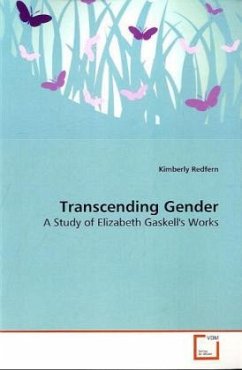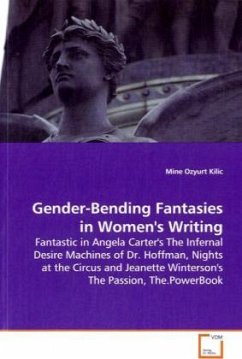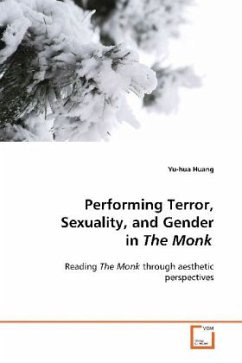
Transcending Gender
A Study of Elizabeth Gaskell's Works
Versandkostenfrei!
Versandfertig in 6-10 Tagen
32,99 €
inkl. MwSt.

PAYBACK Punkte
16 °P sammeln!
During the Victorian Era, women were rarely treated with respect or equality within the patriarchal society. They were never given the chance to become equal members of society. For the most part, Victorian fiction portrayed woman as weak, ineffective and subservient to their male counterparts. However, one writer stands out,among the rest. Elizabeth Gaskell uses her female characters as advocates for societal change. In three of her books, Ms. Gaskell enables these women to transcend both gender and class barriers; Mary Barton, Ruth Hilton, and Margaret Hale defy gender norms with their coura...
During the Victorian Era, women were rarely treated
with respect or equality within the patriarchal
society. They were never given the chance to become
equal members of society. For the most part,
Victorian fiction portrayed woman as weak,
ineffective and subservient to their male
counterparts. However, one writer stands out,among
the rest. Elizabeth Gaskell uses her female
characters as advocates for societal change. In
three of her books, Ms. Gaskell enables these women
to transcend both gender and class barriers; Mary
Barton, Ruth Hilton, and Margaret Hale defy gender
norms with their courage, strength, independence and
intellect. Seen once as subservient and meek, these
three women take us through a journey filled with
doubt, uncertainty and insecurity that ends with a
magical transformation of the very basics of
femininity. Drastic shifts in societal boundaries
arise as these women defy the norm.
with respect or equality within the patriarchal
society. They were never given the chance to become
equal members of society. For the most part,
Victorian fiction portrayed woman as weak,
ineffective and subservient to their male
counterparts. However, one writer stands out,among
the rest. Elizabeth Gaskell uses her female
characters as advocates for societal change. In
three of her books, Ms. Gaskell enables these women
to transcend both gender and class barriers; Mary
Barton, Ruth Hilton, and Margaret Hale defy gender
norms with their courage, strength, independence and
intellect. Seen once as subservient and meek, these
three women take us through a journey filled with
doubt, uncertainty and insecurity that ends with a
magical transformation of the very basics of
femininity. Drastic shifts in societal boundaries
arise as these women defy the norm.












